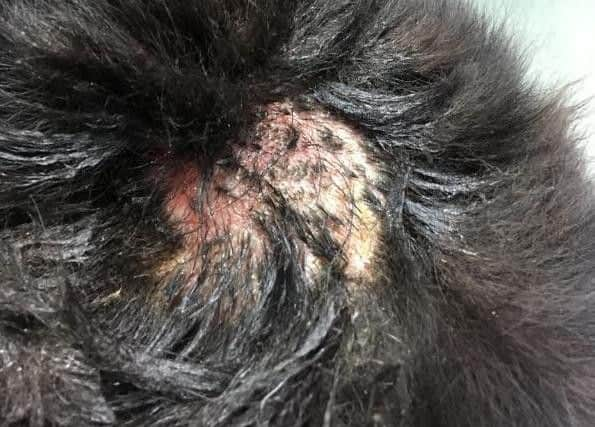Dog hotspot job for Yorkshire vet Julian Norton... and even his own pet requires attention


Advertisement
Hide AdAdvertisement
Hide Ad

Its other name – ‘hotspot’ – makes it sound much less serious, or like a good place to pick up free WiFi. For a variety of reasons – a flea bite, a sore ear, a full and troublesome anal gland, or even just an itch – a dog will start to scratch. But instead of stopping once the itch has been relieved, the dog continues to scratch or lick and soon a minor irritation turns into a painful, infected mess oozing green pus.
The end result of this concerted scratching is something much worse than it was at the start.
From the point of view of the vet, a hotspot is an easy thing to diagnose – there is no need for any blood tests, nor X-rays or scans. All we need is our eyes. And, for all they are a mess and a big problem, hotspots are quite straightforward to treat.
Advertisement
Hide AdAdvertisement
Hide AdThe first job is to clip off the hair. Sticky, gooey hair stuck onto a painful lesion causes more soreness and removing it is a very important first step. It can be painful and sometimes we need to do this under sedation.
Moss was a tolerant dog though, and stood patiently while I clipped. Once the hair is off the hot spot usually looks a lot less hot. It also looks much less like a spot, since the area can be much bigger than first impressions suggest.
The next job is gentle bathing with warm water, antiseptic and cotton wool, cleaning away infected tissue and gunk. Once this is sorted out, the skin looks much more healthy. Some soothing gel, a course of antibiotics and sometimes anti-inflammatories to take away the soreness and remove the urge to itch, and the condition is on its way to being fixed.
The final job is to try to find the cause of the original scratching. I search for fleas, check the anal glands and examine the ears. Sometimes there is no sign of what started it, and this was the case with Moss, but I knew that he would be feeling much, much better by the morning.
Advertisement
Hide AdAdvertisement
Hide AdAnother patient this week had an altogether different problem. It was my own dog, Emmy. Emmy is a picture of energetic health and, apart from the occasional accident - usually as result of rushing around at high speed, without considering the consequences – she rarely needs veterinary attention.
Emmy would follow me to the end of the earth (as long as I had a tennis ball) and she loves accompanying me on my calls and sitting in my car.
We were out for our usual morning walk – a high-speed excursion for her and an uninterrupted 20 minutes before the hectic challenges of the day for me.
It was a lovely, sunny morning and Emmy was at full tilt. She had investigated all corners of Sowerby Flatts and made friends with owners, other dogs and the miscellaneous cattle which frequent these meadows.
Advertisement
Hide AdAdvertisement
Hide AdOn our way back, she stopped to go to the toilet and I reached into my back pocket for the obligatory plastic bag. I bent down, be-bagged hand ready to scoop the poop. But what the heck was that, squirming and white and wiggling on the surface of the poo? Before my very eyes was a tapeworm!
My own, healthy dog, wormed as regularly(ish) as she should be, was infested with parasites! I was mortified. Most urgent job, once I’d got to work: find my dog a wormer!
Julian Norton’s new book, On Call with a Yorkshire Vet, is available for £11.99 at www.ypbookoffer.co.uk or call 01274 735056.